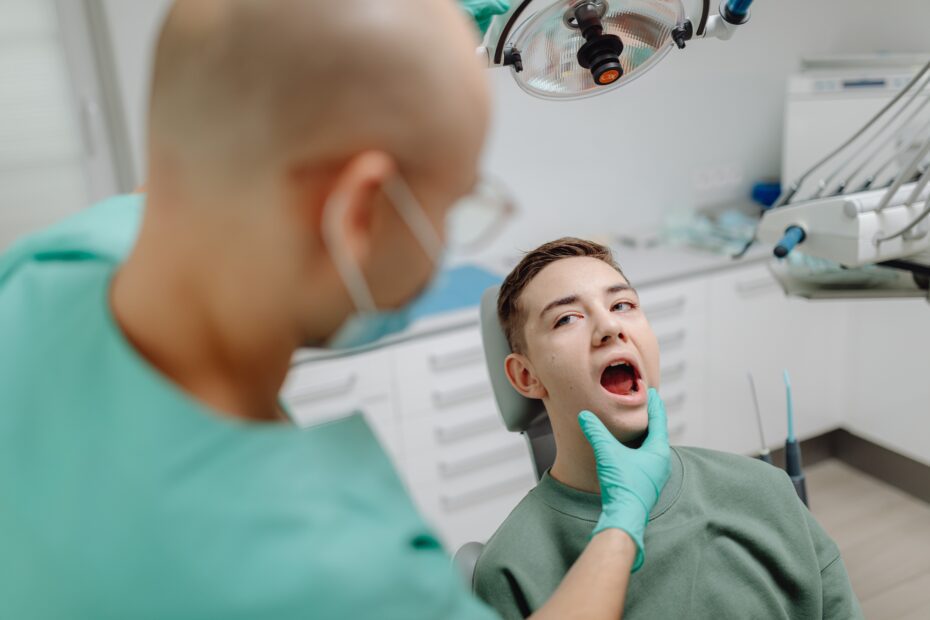Stomatitis means inflammation of the mouth, wherein the mucous membranes (thin skin coverings in the mouth) turn swollen, red, puffy, tender, and painful. Stomatitis that affects the mouth has two types—dental and oral stomatitis. Keep reading to learn more about dental stomatitis.
What Is Dental Stomatitis?
Denture stomatitis (DS), also known as thrush, is a localized infection in the mouth caused by fungus or yeast. A high concentration of microbes called candida is the cause of DS. It is a non-communicable disease that affects gingival and palatal mucosa. Some other names for DS are ‘prosthetic stomatitis’ and ‘denture sore mouth.’
What Causes Dental Stomatitis?
A combination of wearing dentures and poor oral hygiene is the primary trigger for denture sore mouth. Lack of hygiene while wearing dentures creates an environment conducive to candida growth.
Brushing for less than two minutes or improperly, eating too many sugary foods daily, and the denture material may also cause DS. Some other common causes of DS are:
- Dry mouth when wearing dentures
- Not cleaning dentures regularly and thoroughly
- Smoking
- History of diabetes and immunodeficiency
- Taking certain antibiotics for a prolonged period
What Are The Symptoms Of Dental Stomatitis?
Although DS is a mild condition in most cases, its early detection helps treat it quickly. Its severe forms cause painful and discomforting problems like tongue sores, chronic numbness, bleeding gums, and halitosis. The following are the common symptoms of dental stomatitis:
- Swollen and red gums and lip corners
- Soreness in areas that come in contact with dentures
- Dry palate, with a change in texture
- Dry mouth
- Bad breath
- Change in taste
- Burning sensation in the mouth
Patients will experience two or more symptoms simultaneously in severe cases. However, most mild cases have one or two symptoms. Sometimes, there may be no symptoms of DS, making its detection difficult. Dental professionals use the Newton inflammation scale to determine the severity of inflammation in patients with DS.
What Is The Best Treatment For Dental Stomatitis?
The best treatment for DS comprises several factors. First, replace the problem-causing dentures with new well-fitted dentures. Your dentist may suggest implants or all-on-4 dentures. Next, regular oral hygiene is non-negotiable. Additionally, caring for dentures as instructed by your dentist is an important step. Sanitizing your dentures, cleaning them thoroughly to get rid of food particles and plaque, and changing the material of dentures (if required) are a few standard practices to treat dental stomatitis. Finally, when symptoms of DS are present, don’t wear dentures overnight as it may multiply microbial growth.
Severe cases of DS are treated using deep ultrasonic cleaning to remove all traces of infection. You may also be prescribed topical antifungal ointment (for example, ketoconazole and hexetidine) or gel on the denture surface.
Conclusion
A low-risk oral health problem, DS is manageable through good oral hygiene. Good oral health care and denture maintenance help keep microbial infestations away. To prevent DS, visit your dentist as soon as you notice any unexplained inflammation and soreness when wearing dentures.


